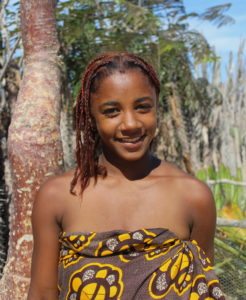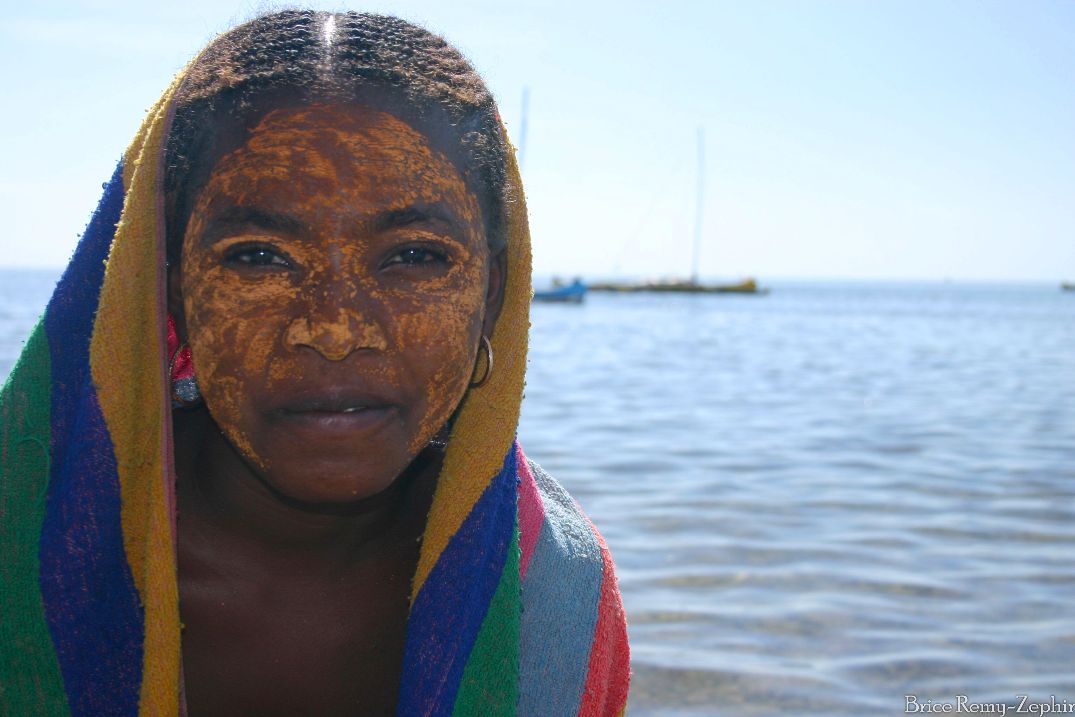Working Towards Gender Equality and Poverty Alleviation in the Bay of Ranobe
Pashna is an 18-year-old woman who lives in the village of Ifaty with her husband and baby. She is an intelligent hardworking woman who, until recently, could look forward to a future raising her child and caring for her family, but had little or no prospects when it came to getting paid work outside the home. Like many other women in this region, there were very few options open to her to earn a living.
family, but had little or no prospects when it came to getting paid work outside the home. Like many other women in this region, there were very few options open to her to earn a living.
Gender roles are very clearly defined in Vezo culture. Although the Vezo people make their living from the sea, fishing is traditionally a male dominated activity, while women tend to fish or collect invertebrates and shells in the intertidal zone at low tide. This means that most women rely on the men in their family to provide food and shelter. It also means that most women do not have the same opportunity to conduct business or work outside the home that men do. This often results in women being less confident in business and social settings.
In the Bay of Ranobe, the most common way to make a living and feed families is through fishing. However, the area is becoming increasingly popular as a tourist destination. While there are jobs available in the hospitality industry, without good spoken and written French, and without proper training, these positions are not open to local people in the Bay of Ranobe. Instead, they are often given to people from the capital, Antananarivo, who are trained and experienced in this industry.
Therefore, the team at Reef Doctor was very excited to hear about a training and internship program established by S.O.S Village d’Enfants (S.O.S) together with the Bureau International du Travail (BIT) to train young women to take up jobs in hospitality as waiting and hotel staff. S.O.S Village d’Enfants is an NGO that works with children and young people in developing countries to alleviate poverty. ReefDoctor was approached by S.O.S about the training course and asked to recommend young women to enroll. Pashna was recommended to take part in the 3-month training program and recently completed her two-month internship at Solidaire Hotel in Mangily.
We caught up with Pashna last week to see how her training went. It was great to see her and get her thoughts on the internship. Pashna said it was a really enjoyable course that gave her good practical all round experience and taught her the theory behind professional service. She said that before her training and internship she knew nothing about the hospitality industry and had no chance of getting work in a hotel like Solidaire; however, now she is in a much better position to look for such work. She said another benefit was that she had a lot more contact with people from different backgrounds. Pashna said that this contact has made her more confident in her own abilities. She is now networking and building up her contacts in the industry!
This is a great reminder that education is key, not only to poverty alleviation and sustainable development, but also for building confidence in people in their own abilities and knowledge, through practical experience and classroom-based learning. It is so encouraging to see Pashna (and hopefully many more young women like her) taking steps to establish her career in an alternative livelihood and carve out a place for herself in the community, in addition to her important roles as a wife and mother.
What’s next for Pashna? Many of the hotels in the Bay of Ranobe close for the summer season but are reopening soon. Pashna has already got a plan in place to look for work as soon as the hotels reopen. We wish her the best of luck and will keep you all updated on her progress. Watch this space!
Story by RD Communications Officer Ivana Rubino




